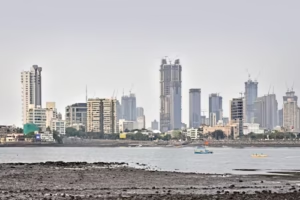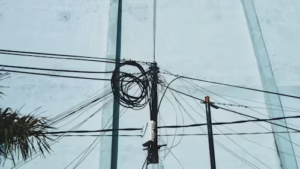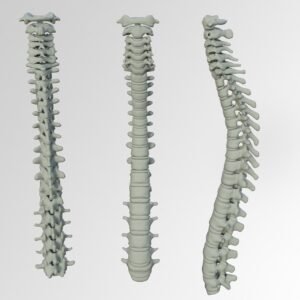Internet Dislocations in the Middle East and South Asia After Red Sea Cable Cuts

Preface
The world depends heavily on undersea lines for smooth digital communication, pall services, and internet connectivity. Lately, several undersea string cuts in the Red Sea have caused wide internet dislocations, impacting countries across the Middle East and South Asia.
Microsoft verified that its Azure pall services were directly affected, leading to detainments and advanced quiescence for druggies counting on its global platform.
These events punctuate how fragile our digital structure can be and why similar dislocations count deeply for countries like Pakistan, India, and the UAE, where millions calculate on the internet for business, education, and diurnal communication.
Microsoft Confirms Azure Service Delays

Microsoft, one of the largest technology companies in the world, blazoned that its Azure pall platform was passing connectivity issues due to fiber cuts in the Red Sea.
The company explained that internet business passing through the Middle East was being rerouted, which caused slower pets and increased quiescence.
Still, Microsoft clarified that druggies whose network business doesn’t pass through the affected region were not impacted. The company assured guests that masterminds are working on rerouting business and furnishing diurnal updates until the situation stabilizes.
How Undersea Cable Cuts Affect Internet Connectivity

Undersea fiber optical lines form the backbone of the global internet. They carry over 95% of transnational data, connecting main lands and enabling real-time communication worldwide.
When these lines are cut or damaged, it causes major internet dislocations, particularly in regions that calculate on them as critical capitals similar as the Middle East, which links Asia to Europe.
The recent dislocations were traced to the SMW4 and IMEWE string systems near Jeddah, Saudi Arabia, as verified by Net Blocks, an association monitoring internet access worldwide.
Countries Affected by the Outage

The string cuts caused conspicuous retardations in several countries, including:
-
Pakistan – Telecom providers advised druggies of reduced internet pets, especially during peak hours.
-
India – Internet connectivity was degraded, affecting both businesses and individual druggies.
-
United Arab Emirates (UAE) – Service providers reported intermittent dislocations.
-
Saudi Arabia – Being close to the source of the damage, the area also endured reduced internet performance.
Net Blocks observed that druggies in these countries faced slow pets, intermittent access, and degraded performance, making it delicate to stream, browse, or work efficiently.
Why This Matters for Pakistan and South Asia

For South Asia, especially Pakistan, similar internet dislocations can have wide-ranging consequences:
-
Business Impact – Numerous startups, freelancers, and IT companies depend on stable connectivity for global guests. Even short detainments can mean fiscal losses.
-
Education – Scholars attending online classes or preparing for transnational examinations face interruptions in their literacy process.
-
Daily Life – Online payments, e-commerce, and indeed social media operation come frustrating during slow internet hours.
In a country like Pakistan, where the digital frugality is still growing, similar dislocations punctuate the critical need for backup routes and stronger original structure.
Possible Causes of Cable Damage

Undersea lines are vulnerable and can be damaged in several ways:
-
Accidental damage by vessels’ anchors
-
Natural disasters similar as earthquakes
-
Deliberate sabotage or attacks
- https://apnews.com/
This isn’t the first time the Red Sea lines have been affected. In early 2024, multiple lines were cut, raising reservations of possible sabotage. Governments in the region had formerly advised of implicit pitfalls, although groups like the Houthis denied responsibility.
In Europe, analogous incidents passed in the Baltic Sea, where lines and channels were damaged under suspicious circumstances after the Ukraine conflict.
Benefits and Downsides of Undersea Cables

Benefits
-
Give presto and dependable global connectivity
-
Support transnational trade, business, and remote work
-
Enable pall services like Microsoft Azure and Amazon AWS
Downsides
-
Vulnerable to physical damage
-
Repairs are expensive and time-consuming
-
Reliance on a few strategic routes creates weak points in global internet security
Unborn Impact and Suggestions

Looking ahead, countries in the Middle East and South Asia must take concrete way to reduce the pitfalls of internet dislocations. Some possible measures include:
-
Diversifying Internet Routes – Structure volition string routes that bypass conflict-prone regions.
-
Investment in Satellites – While slower than fiber lines, satellite internet (e.g., Starlink) can give backup during heads.
-
Regional Cooperation – Countries like Pakistan, India, and Gulf countries should work together on securing and maintaining critical structure.
-
Public Awareness – Governments must inform citizens snappily when dislocations do to help fear and misinformation.
Still, unborn string cuts could beget indeed lesser damage, especially as further businesses and governments depend on pall computing, if way aren’t taken.
My Perspective

From a Pakistan and South Asia standpoint, this incident is a memorial that our region’s digital backbone is fragile.
While Pakistan has made progress in expanding internet access, the country still depends on a sprinkle of transnational string systems.
To guard against unborn pitfalls, Pakistan should invest in multiple spare string systems and encourage hookups with transnational providers.
Without this, every undersea string cut will continue to beget civil internet dislocations, holding back the digital frugality.
Conclusion

The recent internet dislocations caused by Red Sea undersea string cuts have formerly again stressed the world’s dependence on fragile oceanic structure.
Microsoft’s Azure services were impacted, and countries like Pakistan, India, and the UAE endured demoralized connectivity.
For Pakistan and South Asia, the event is both a warning and an occasion. By investing in backup systems, diversifying routes, and preparing for risks, the region can reduce its vulnerability to future crises.
Ensuring strong, uninterrupted internet connectivity is not just a technical requirement—it is a national priority for the digital future.